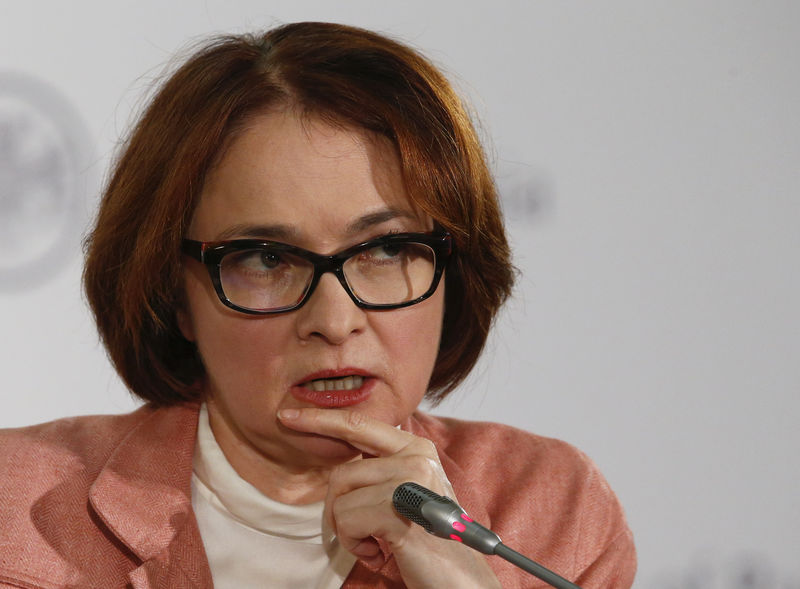By Andrey Ostroukh and Jack Stubbs
MOSCOW (Reuters) - The Russian Central Bank lowered its main interest rate to 8.5 percent from 9 percent on Friday and said it expected to deliver more cuts in the next six months as inflation slows.
After putting monetary easing on halt in late July, the Central Bank has now embarked on a new rate-cutting cycle as inflation - its key area of responsibility - had weakened more than expected.
Unlike in previous statements, the central bank did not say that global geo-political risks along with fluctuations in the rouble posed upside risks for Russian consumer inflation.
"Taking into account a balance of risks for inflation, the Bank of Russia considers its possible to lower the key rate in the next half a year," said Central Bank Governor Elvira Nabiullina.
"We will ease monetary policy smoothly," she said at a news conference where she explained the rationale for lower rates.
When asked about the scale of future moves, Nabiullina said the central bank was considering trimming the rate by 25 or 50 basis points, or putting it on hold.
"Despite the size of today's rate cut, the tone of the accompanying statement, as well as Ms. Nabiullina's press conference, was very cautious," Capital Economics research firm said in a note.
Barclays (LON:BARC) Capital said it now expects the central bank to cut rates by 25 basis points at each of the two remaining meetings this year, on Oct. 27 and Dec. 15.
Renaissance Capital said it sees the central bank leaving rates on hold next month, before slashing them by another 50 basis points before the end of the year.
Friday's cut was in line with market expectations and the fourth so far this year, bringing the key rate to its lowest since late 2014, down from 10 percent at the beginning of this year.
The central bank also revised its economic forecasts. Citing stronger consumer and investment demand, the regulator said it now expects gross domestic product to grow by up to 2.2 percent in 2017, up from its previous outlook for 1.3 to 1.8 percent.
With inflation risks subsiding, the central bank has an opportunity to lower the cost of borrowing to help underpin an economic recovery. Annual inflation slipped to 3.3 percent in August, below the bank's target of 4 percent.
While inflation is running at the lowest rate in the post-Soviet period, a level some analysts considered unattainable two years ago when annual price rises hovered near 17 percent, the central bank is still in the very early stages of securing price stability, Nabiullina said.
Nabiullina said the central bank still needs to "anchor inflation expectations", which could be done by 2019 when the bank's main rate could reach 6.5-7 percent.

The rouble hovered around 57.6 to the dollar on Friday